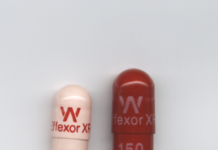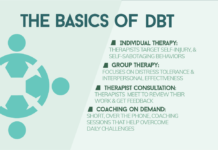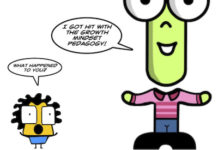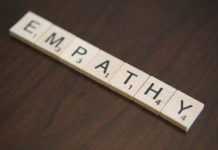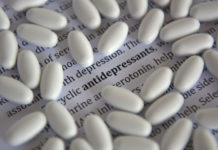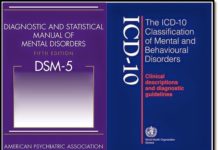Open Dialogue Approach Reduces Future Need for Mental Health Services
The Open Dialogue psychiatric treatment approach is associated with reduced utilization of mental and general health services for Danish youth.
Transcranial Magnetic Stimulation No Better Than Placebo for Treatment-Resistant Depression
A new study in JAMA Psychiatry found that transcranial magnetic stimulation was no better than placebo for treatment-resistant depression.
Study Deems Support, Not Drugs, Best for Youth at Risk of Psychosis
Research by five U.K. universities across multiple sites for up to two years divided 288 young adults (14-35 years) deemed at risk for psychosis...
New Study Casts Doubt on Efficacy of Ketamine for Depression
A new study, published this month in the Journal of Affective Disorders, investigated the effectiveness of weekly intravenous ketamine injections as a treatment for...
Study Finds Hearing Voices Groups Improve Social and Emotional Wellbeing
Hearing Voices Network self-help groups are an important resource for coping with voice hearing, study finds.
Bad-Science Warning: The “Minnesota Study of Twins Reared Apart” (MISTRA)
The huge impact of the MISTRA, in addition to the harmful and regressive social and political policy implications that flow from it, necessitates a detailed analysis of the “science” behind the study’s major claims and conclusions. Here I offer a new critique of this famous and influential “separated twin study.”
Researchers Search for Subgroups Where Antidepressants Are More Effective
The researchers theorized that this increased effectiveness was due not to “antidepressant” properties, but rather to the drug’s side effects, which include insomnia, drowsiness, and nausea.
Hereditary Madness? The Genain Sisters’ Tragic Story
The story of the Genain quadruplets has long been cited as evidence proving something about the supposed hereditary nature of schizophrenia. But who wouldn’t fall apart after surviving a childhood like theirs? The doctors attributed their problems to menstrual difficulties or excessive masturbation — anything except abuse.
Involuntary Hospitalization Increases Risk of Suicide, Study Finds
New study finds that people who felt they were coerced into being hospitalized were more likely to attempt suicide later.
Peer-Support Groups Were Right, Guidelines Were Wrong: Dr. Mark Horowitz on Tapering Off Antidepressants
In an interview with MIA, Dr. Horowitz discusses his recent article on why tapering off antidepressants can take months or even years.
When Healing Looks Like Justice: An Interview with Harvard Psychologist Joseph Gone
MIA’s Ayurdhi Dhar interviews Joseph Gone about how a history of dispossession, conquest, and colonization shapes mental health outcomes in Native American communities.
Dialectical Behavior Therapy Reduces Self-Harm and Suicide Attempts
A new meta-analysis finds that DBT reduces self-harm, suicide attempts, and reduces the frequency of psychiatric crisis service utilization.
New Data on the Adverse Effects of Meditation and Mindfulness
Study reports on the less-examined findings of difficult and painful meditation-related experiences.
Are Students Benefiting From the Growth Mindset Model?
Results from two meta-analyses reveal shortcomings with the growth mindset theory as applied in schools.
Therapist Empathy Predicts Success in Psychotherapy
An updated meta-analysis reveals that therapist empathy is a predictor of better psychotherapy outcomes.
Fighting for the Meaning of Madness: An Interview with Dr. John Read
Akansha Vaswani interviews Dr. John Read about the influences on his work and his research on madness, psychosis, and the mental health industry.
Garbage In–Garbage Out: Systematic Reviews and Meta-Analyses can tell us a Flawed Story
Well known Stanford University researcher John Ioannidis published a new paper this week criticizing the use and production of systematic reviews and meta-analyses, often...
How Does the Soteria House Heal?
The alternative treatment model of Soteria helps individuals suffering from schizophrenia without relying on medication or coercion.
New Study Concludes that Antidepressants are “Largely Ineffective and Potentially Harmful”
A new study published in Frontiers in Psychiatry concludes that “antidepressants are largely ineffective and potentially harmful.”
Developing Alternatives to the DSM for Psychotherapists
A new article suggests counselors and psychotherapists are dissatisfied with current diagnostic systems and outlines some potential alternatives.
Antidepressants Blunt Ability to Feel Empathy
A new study suggests that taking antidepressants impairs empathy, while the experience of depression itself does not.
Ioannidis Questions Strength of Psychology and Neuroscience Literature
Last week, well-known Stanford scientist John Ioannidis and his colleague Denes Szucs released a new analysis online. They examined research published in eighteen prominent...
Toward a Critical Self-Reflective Psychiatry: An Interview with Pat Bracken
MIA’s Justin Karter interviews critical psychiatrist and philosopher Pat Bracken about the necessity of challenging received wisdom.
Addressing the Roots of Racial Trauma: An Interview with Psychologist Lillian Comas-Díaz
MIA’s Hannah Emerson interviews Comas-Díaz on the need for culturally competent care in a medicalized and individualistic society.
Has Evidence Based Medicine Been Hijacked?
John Ioannidis claims that the idea of evidence based medicine has been “hijacked to serve agendas different from what it was originally aimed for,” in a newly published critical essay in the Journal of Clinical Epidemiology. Ioannidis frames the essay as a continuation of a conversation with David Sackett, widely considered the founder of evidence based medicine.







